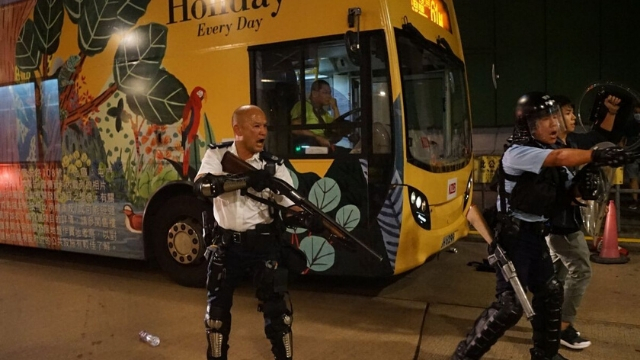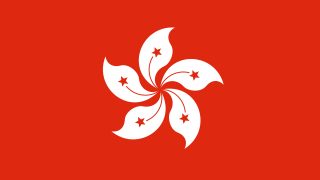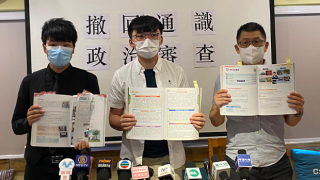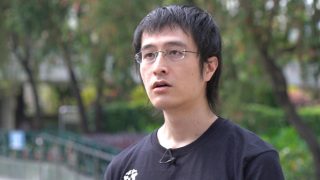The National Security Law creates four new bodies with practically unlimited powers, and no accountability except to the CCP government in Beijing.
by Massimo Introvigne

Notwithstanding the Chinese propaganda, the “Law of the People’s Republic of China on Safeguarding National Security in the Hong Kong Special Administrative Region,” whose full text is now available, is not a “normal” law, and not only because it asserts jurisdiction on all critics of the CCP everywhere on the planet. It is an exceptional law, which will be enforced by four exceptional administrative, police, and judiciary bodies.
- The Office for Safeguarding National Security
The first, and the key of the whole system, is called (香港特別行政區維護國家安全公署). This is a Mainland China institution, which has extensive powers for “overseeing, guiding, coordinating,” and directly “handling,” “cases concerning offences endangering national security” (Article 49). Those guilty of one of these offenses can be prosecuted in Mainland China, since for each of these cases “the Supreme People’s Procuratorate shall designate a prosecuting body to prosecute it, and the Supreme People’s Court shall designate a court to adjudicate it” (Article 56).
Just how powerful this agency is, is specified in Article 60, stating that, “The acts performed in the course of duty by the Office for Safeguarding National Security of the Central People’s Government in the Hong Kong Special Administrative Region and its staff in accordance with this Law shall not be subject to the jurisdiction of the Hong Kong Special Administrative Region.”
Professor Donald Clarke, of George Washington University, a leading expert in Chinese law, has commented that agents of this new Office will be “untouchable under Hong Kong law. This is real Gestapo-level stuff. And here’s the kicker: it would seem they are untouchable under mainland law as well.” Even if one officers of the special Office would kill a dissident in cold blood, Professor Clarke explains, he or she would not be liable under Hong Kong law. “Well, what about the Criminal Law of the PRC [People’s Republic of China]? Unfortunately, the only PRC laws applicable in Hong Kong are those listed in Annex III to the Basic Law, and the Criminal Law is not listed there. Incredible. It seems that officials of the Office for Safeguarding National Security can move around Hong Kong in their own little lawless bubble.”
- The Committee for Safeguarding National Security
The second new agency created by the law is called The Committee for Safeguarding National Security of the Hong Kong Special Administrative Region (香港特別行政區維護國家安全委員會). According to Article 12 of the new law, it is under the direct supervision of the Central People’s Government in Mainland China, which means the State Council and the Premier.
It will be chaired by a Chief Secretary, and its Hong Kong members will be the Chief Secretary for Administration, the Financial Secretary, the Secretary for Justice, the Secretary for Security, the Commissioner of Police, the head of the newly established Department for Safeguarding National Security (of which more later), the Director of Immigration, the Commissioner of Customs and Excise, and the Director of the Chief Executive’s Office. It will have a Secretariat, led by a Secretary-General, and a National Security Advisor, appointed by the Central People’s Government in Beijing (Article 15).
Article 14 states that, “Information relating to the work of the Committee shall not be subject to disclosure. Decisions made by the Committee shall not be amenable to judicial review,” meaning that the Committee’s activities will be secret and not subject to the control of Hong Kong courts nor any other court.
- The Department for Safeguarding National Security
While the Commitee is administrative, Article 16 also creates a new police, the Department for safeguarding national security, with law enforcement capacity (維護國家安全的部門,配備執法力量). The head of this Department shall be appointed by Hong Kong’s Chief Executive, but only after written consultation with the Beijing-appointed (and semi-omnipotent) Office for Safeguarding National Security of the Central People’s Government in the Hong Kong Special Administrative Region.
This new police will do pretty much everything in connection with the scope of the law, i.e the repression of all forms of protest and dissent. Article 17 mandates that it “shall be:
(1) collecting and analysing intelligence and information concerning national security;
(2) planning, coordinating and enforcing measures and operations for safeguarding national security;
(3) investigating offences endangering national security;
(4) conducting counter-interference investigation and national security review;
(5) carrying out tasks of safeguarding national security assigned by the Committee for Safeguarding National Security of the Hong Kong Special Administrative Region; and
(6) performing other duties and functions necessary for the enforcement of this Law.”
- The National Security Prosecution Division
Finally, the system of exception does not stop at police, but includes prosecution. Article 18 creates the National Security Prosecution Division (國家安全犯罪案件檢控部門).
Again, the head of this body will be appointed by the Chief Executive, but only after written consultation with the Office for Safeguarding National Security of the Central People’s Government in the Hong Kong Special Administrative Region. Once a dissident is arrested, the law makes sure that the “Gestapo-level” Office (Professor Clarke’s words) controls prosecution as well, so that nobody has a chance to escape.
Source: Bitter Winter



